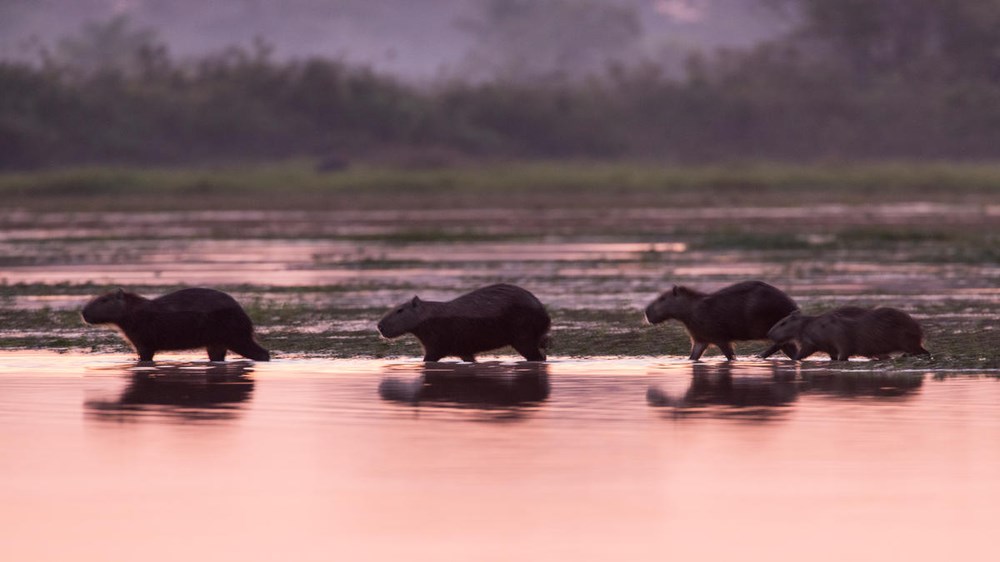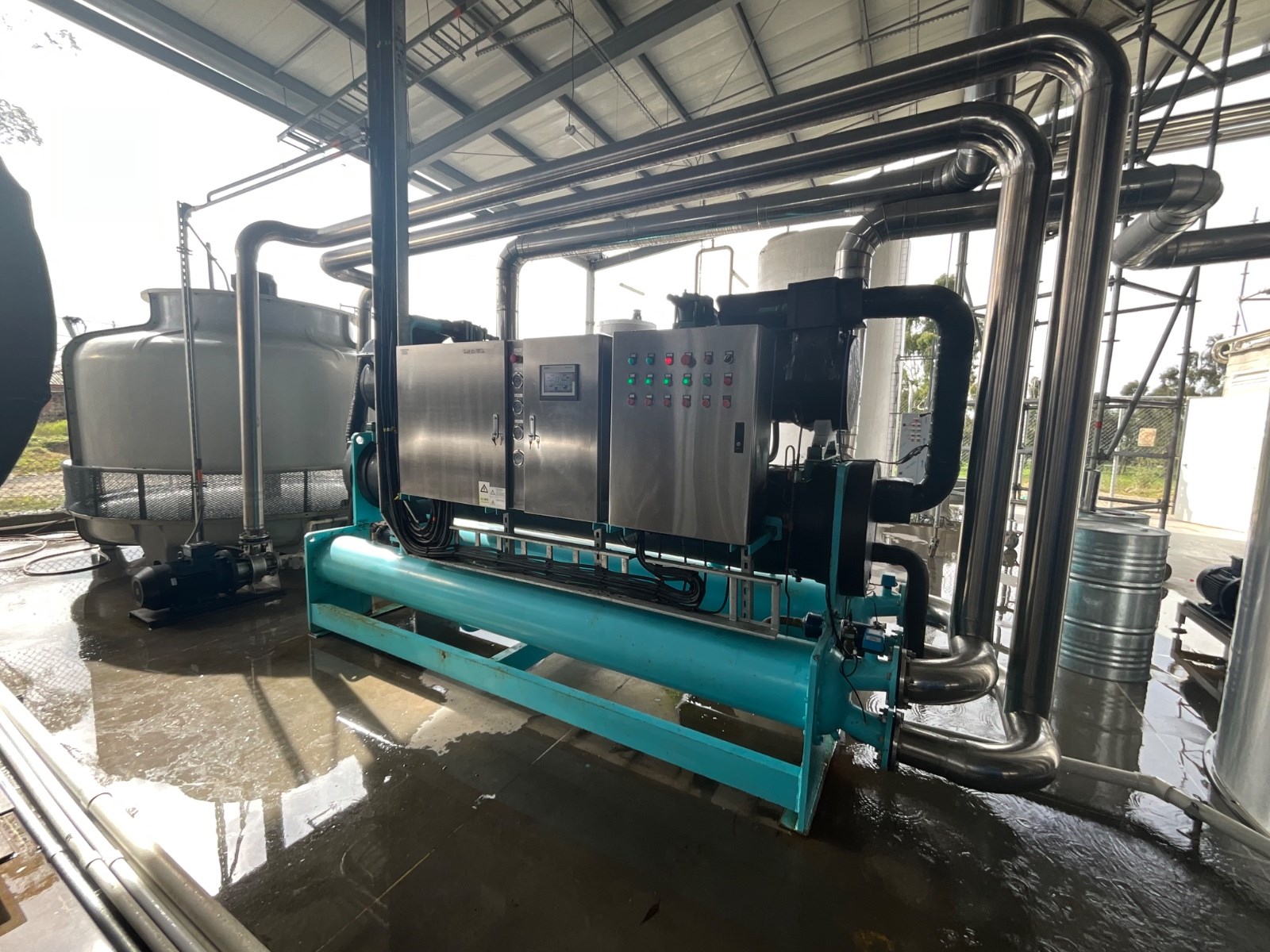Transforming dairy waste into opportunity and impact in Colombia
The Dutch Fund for Climate and Development intends to partner with ALSEC to enhance its waste-to-value stream in the dairy sector.
ALSEC is a Colombian company specialising in innovative food technology that develops high quality, nutritious ingredients for a variety of markets and buyers. Its new business line, which converts often environmentally hazardous whey into valuable products, is designed to increase the resilience of farmers in its value chain, while decreasing pollution to support biodiversity.
The project with ALSEC has been put forward by the World Wide Fund for Nature Netherlands (WWF-NL), which, together with SNV, a global development partner, manages the DFCD’s Origination Facility to develop new projects for the climate investment fund. With the approval of the grant, WWF has the intention to sign a €246,400 grant funding agreement with ALSEC, who, in collaboration with WWF Colombia, will help build the capacity of the local dairy farmers and enhance the company's environmental impact monitoring.
Dairy waste threatens biodiversity
Colombia, home to over 56,000 species, harbours about 10% of the world’s biodiversity. However, this rich biodiversity is under threat from various factors, including pollution. In this regard, the country’s dairy sector faces challenges with the disposal of whey, a byproduct of cheese production. Colombia produces around 7,800 million litres of milk annually, and approximately 10% of this becomes whey after the milk is transformed into other products.
A significant portion of this whey is discarded without proper treatment, particularly by small cheese factories, leading to severe environmental contamination. For each kilogram of cheese produced, nine litres of whey are generated, and an estimate of between 47% and 60% of whey ends up in water systems and sewers, creating high biological oxygen demand (BOD) and chemical oxygen demand (COD).

This improper management can have serious environmental damage, increasing water pollution, eutrophication, and soil impermeabilisation. Globally, around 90 million tons of whey are disposed of annually, mostly in aquatic environments, further compounding ecological harm. The high nutrient load depletes oxygen levels in aquatic systems, leading to a loss of biodiversity, altering ecosystems, and contributing to the decline of aquatic species. The challenge is to find sustainable and economically viable technologies to valorise whey and reduce its environmental impact.
A more resilient value chain
If treated correctly, whey can be transformed into supplements such as Whey Protein Concentrate (WPC) and Whey Protein Isolate (WPI), which are in high-demand due to their functional and nutritional value. However, processing of whey to extract its proteins is a highly technical and technological process that requires high investment, so many cheese producers in Antioquia will instead dump their whey into waterways and soil.

In response to this, ALSEC has launched MILSEC, a new business line which aims to convert whey sourced from local cheese makers into the valuable nutrition products. The arrival of the MILSEC processing plant in the region better integrates small farmers into the whey value chain, providing them with new income streams and promoting environmental sustainability. MILSEC also operates a specialised milk processing line that integrates small producers into its value chain. By purchasing milk directly from these producers, ALSEC ensures a higher quality of milk, with optimised fat content that aligns with the needs of its MILSEC products, which include protein and fat ingredients.
Working with DFCD
A key component of the MILSEC project is the introduction of climate-resilient farming practices for dairy farmers in the region, including trainings in waste and water management. Additionally, ALSEC want to be able to accurately measure and monitor their environmental impact as the company grows. Therefore, ALSEC is seeking a grant of €246,400 from the DFCD Origination Facility. The funds will be used to:
-
Build capacity for smallholders through training programmes on sustainable farming practices and quality assurance.
-
Conduct a water quality baseline assessment of the local tributary to measure current contamination levels. The assessment will also include a monitoring plan and inform data-based expansion, ensuring that future activities are aligned with environmental sustainability goals.
-
Develop a no deforestation assessment and strategy to ensure zero deforestation in supply chains.
-
Strengthen women’s workforce participation through gender-inclusive strategies aimed at empowering women in the value chain.
Forecasted Impact
The Origination Facility grant will better position ALSEC to secure private financing to scale its model. Upon maturation the project forecasts the following impact:
- Sustainable land use of up to 1000 hectares through the implementation of Good Farming Practices and the integration of smallholders into the supply chain.
- Empowerment of over 500 smallholders, with a focus on gender inclusion, enabling better livelihoods and increased climate resilience.
- Significant reduction in waste from the dairy industry, transforming pollutants into high-demand protein products.
“ALSEC’s commitment to addressing both environmental and social challenges positions it as a leader in sustainable ingredient production in Colombia. By transforming whey into high-value products, the project showcases how innovative solutions can tackle pollution while generating economic opportunities for smallholders.”
– Tania Evia, Regional Lead, DFCD Latin America
“Reaching this milestone with WWF and the DFCD, is wonderful. We are very grateful, as this has been the opportunity to continue aligning our purpose: ”Food that transforms lives with ingredients to change the world“ with our strategy, tactics and activities to be developed. Thanks to the support from DFCD, we will be able to materialise the sustainable business model projection that we had for MILSEC. Thank you for sharing your good practices and giving us the necessary capabilities to scale this project, ensuring the impact on all our stakeholders.”
– Mauricio Vargas, CEO ALSEC
Contact
For more information, contact Tania Evia, WWF’s Regional Lead, DFCD Latin America at tevia@wwf.bolivia.org.
In case you have any grievances in relation to this project of the DFCD’s Origination Facility, please contact us through our service desk at servicedesk@wwf.nl.
About ALSEC
ALSEC is a Colombian company specialising in innovative food technology that develops high quality, nutritious ingredients for a variety of markets and buyers.
About DFCD
The Dutch Fund for Climate and Development (DFCD) is a climate resilience fund, dedicated to supporting climate adaptation and mitigation projects which benefit vulnerable communities and landscapes. Initially funded by the Dutch government, it is powered by a consortium of four expert organisations: FMO (Dutch Entrepreneurial Development Bank), CFM (Climate Fund Managers), SNV, a global development partner, and WWF Netherlands.
